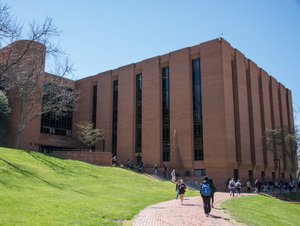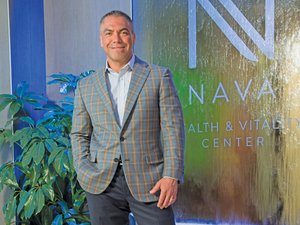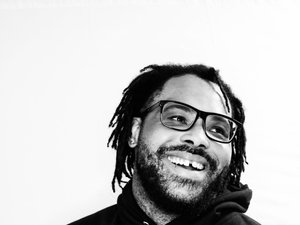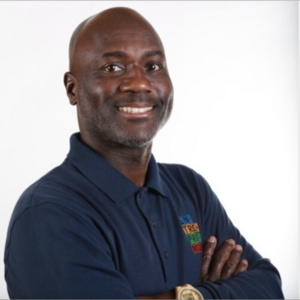
A trio of executives — including a former Baltimore Ravens player — are teaming up to build a venture capital fund with a business model tailor-made for an era when capital is harder and harder to find.
The Tiger Fund is the creation of former Ravens player and Super Bowl champion Kyle Richardson, Patrick McQuown, Towson University’s executive director of entrepreneurship, and venture capitalist Alfred Ko of the StepStone Group, a fund with $139 billion of assets under management. The group plans to raise at least $2 million through institutional and retail investors before investing any money. The Tiger Fund will invest solely in companies that participate in Towson University's StarTUp incubator, giving McQuown a unique chance to learn about the business model and founders of the startups before he invests in them.
"We can do more due diligence than any meeting a VC is going to take," McQuown said. "They are with me for eight weeks rather than two-hour long meetings."
The fund spun out of McQuown's friendship with Richardson. The former Raven has started several companies since his playing days, such as health information company Caring One, and wanted to invest in StarTUp companies. Instead of just having Richardson invest in companies as an individual investor, McQuown thought it would be a great opportunity to set up a fund.
The Tiger Fund will take a different approach to growing startups than standard venture capital funds. The fund is targeting companies that are ready to launch a product into the market but need a quick infusion of cash to expand and get ready for production. McQuowon said he is not looking to take a company from being worth $1 million to $1 billion through multiple rounds of investment like a traditional venture capital fund. Instead, the Tiger Fund will rapidly get a company from being worth $1 million to $30 million after a single, small investment round and then sell to guarantee a quicker return for investors and the chance for founders to make life-changing amounts of money.
“Bull markets are won by storytellers,” McQuown said during an information session on the fund on Thursday at StarTUp at the Armory. “Bear markets are won by frugal founders with durable business models. We are in a bear market.”
After one funding round and a few years of growth, portfolio companies will either get acquired by a large corporation or simply buy out the investors if they want to continue on as an independent business.
Part of the Tiger Fund’s uniqueness will also come from its fee structure. Most venture capital firms use a 2/20 fee model. Investors take 2% of the fund's total value every year for 10 years as management fees and 20% of any profits as fees. The high fees mean that even if a fund manages to beat the stock market, that profit can get sucked up by fees. This fee structure means that funds need to earn massive returns to make money for investors. McQuown is doing away with those fees to have more money to give investors and founders. He and Ko are working for free and only taking a small management fee to pay a lawyer to ensure the fund complies with U.S. Securities and Exchange Commission rules.
The Tiger Fund model could improve the somewhat middling returns of many venture capital firms during an era where the flaws in the traditional model continue to show. The median venture capital fund only beats the S&P 500 by around 4%, according to a study by Cambridge Associates and many funds lose money. The average venture capital fund relies on one or two major companies going public or getting acquired to be profitable since the majority of startups fail. McQuown believes his focus on startups already making revenue will lead to smaller but more frequent acquisitions.
McQuown points to one StarTUp company, StoCastic, as an example of the success of the Tiger Fund model. The artificial intelligence company tried to raise money on a $3 million valuation, but everyone passed on them. Nine months later, the company sold for $10 million in cash, a 260% return that most investors would be happy with.
“These types of bootstrapped businesses were seen as old school for a while,” Ko said. “The VC world for the last five years has been shifting. Everyone is looking for these non-coastal hubs.”
The next information session for the fund is on March 13 at 8:30am at the StarTUp at the Armory in Towson.










